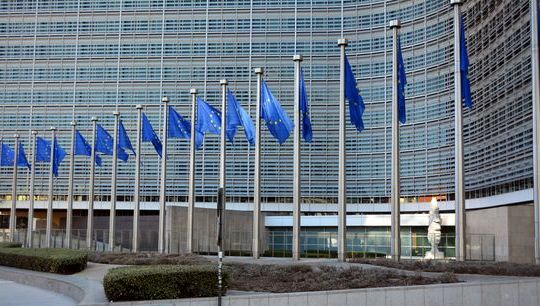MiFID II/MiFIR
Overview:
The Markets in Financial Instruments Directive (MiFID) is a key piece of EU financial services legislation, intended to create a level playing-field for firms to compete in the EU’s financial markets and to ensure a consistent level of consumer protection across the EU. In October 2011, the European Commission adopted a legislative proposal for the revision of MiFID, which focused on investor protection and the stability of the EU financial system and considered market structural developments and new methods of trading, such as dark pool trading of equities and high frequency trading. The proposals took the form of a revised directive (the MiFID II Directive) and a new Level 1 text, the Markets in Financial Instruments Regulation (MiFIR).
In 2014, the MiFID II Directive and MiFIR were published in the Official Journal of the EU. Together with related delegated acts and guidance, the legislative package as a whole is commonly referred to as “MiFID II”. The majority of the MiFID II requirements became effective from 3 January 2018. In March 2024, Level 1 amendments to the MiFIR and MiFID II texts (the MiFIR Review and MiFID II Review) entered into force.
Current work:
EU
In 2020, as part of the EU’s post-COVID-19 capital markets recovery package, the European Commission published a set of “Quick Fix” proposals to amend MiFID II. Much of what was included had been considered by ESMA and European Commission in the past, as part of the broader MiFID II review.
The MiFID Quick Fix was published in the Official Journal of the EU on 1 March 2021. Amendments were made to information requirements and in the field of commodities markets and included:
- Suspension of RTS best execution reports until 28 February 2023
- Alleviation of ex-post reporting requirements for ECPs and professional clients
- Limitation of the scope of the position limit regime to only apply to agricultural commodity derivatives and commodity derivatives designated as critical or significant
- Removal of securitised derivatives from the position limit regime and reporting requirements.
In November 2021, the European Commission published a proposal to review MiFIR and MiFID II, as part of its Capital Markets Union legislative package. Proposals focused on the design of a consolidated tape; the cost and quality of market data; improvements to the systematic internaliser regime; the scope of the share trading obligation; the double volume cap mechanism; the definition of a multilateral trading system; application of the derivatives clearing and trading obligations; non-discriminatory clearing access for exchange-traded derivatives; and a ban on offering payment for order flow.
AIMA broadly supports the review proposal and has been engaging with the European Parliament and Council of the EU on amendments to the MiFIR and MiFID texts. Our detailed position on the proposal can be found here.
On 29 June 2023, the European Parliament and the Council of the EU reached a provisional political agreement in respect of the three main political issues under the MiFIR/MiFID II Review – inclusion of pre-trade data in a CT for shares and exchange-traded funds (ETFs); ban on Payment For Order Flow (PFOF); and provisions relating commodity derivatives. Between July and October 2023, work continued on the technical level to finalise the Review and the agreement was tabled for approval by the Committee of the Permanent Representatives of the Governments of the Member States to the EU (COREPER) and the European Parliament’s Committee on Economic and Monetary Affairs (ECON).
The final texts of the Regulation amending MiFIR and Directive amending MiFID II were approved by the Council of the EU and European Parliament and published in the Official Journal of the EU on 8 March 2024. The new Regulation amending MiFIR and the new Directive amending MiFID II took effect on 28 March 2024. The MiFIR Review is binding in its entirety and directly applicable in all Member States. Members States have until 28 September 2025 to transpose the MiFID II Review.
In terms of next steps, the European Securities and Markets Authority is launching consultations on the outstanding Level 2 aspects of the Review. In May 2024, ESMA published its first package of Level 2 consultation papers. ESMA consulted on new draft RTS on reasonable commercial basis; new draft RTS specifying the organisational requirements for consolidated tape providers, including the method for calculating the amount of revenue to be redistributed to data contributors, the selection of a consolidated tape provider and the procedures for granting applications for authorisation of consolidated tape providers; amended RTS 2 on non-equity transparency; amended draft RTS on position management controls and ITS on position reporting; and amended draft RTS 23 on financial instruments reference data. ESMA will publish final reports for each of the consultations and submit the draft RTSs and ITSs to the European Commission by 29 December 2024 for adoption. Subject to the Council of the EU and European Parliament’s subsequent non-objection, the technical standards will be published in the Official Journal of the EU and be binding in their entirety and directly applicable in all Member States.
See here for further details.
UK
In July 2021, HM Treasury launched a broad consultation to determine how the UK’s approach to regulating secondary markets should be adapted post-Brexit and improve certain rules under the onshored EU Markets in Financial Instruments Directive II (MiFID II) and Markets in Financial Instruments Regulation (MiFIR) that have not delivered their intended benefits. Proposals ranged from the operation of the systematic internaliser regime and commodities position limits framework to the establishment of a consolidated tape.
In December 2022, a package of 30 reforms, the “Edinburgh Reforms”, were announced by the UK’s Chancellor of the Exchequer. The Edinburgh Reforms put some of the WMR proposals into action, such as bringing forward secondary legislation in Q1 2023 to remove regulatory burdens for firms trading commodity derivatives as an ancillary activity; providing a timeline for the creation of a regulatory regime to support consolidated tapes for market data; and laying a statutory instrument before the UK Parliament to remove burdensome requirements related to investor reporting rules, including a revocation of Article 62 of the UK version of the MiFID Org Regulation (additional reporting obligations for portfolio management or contingent liability transactions) which came into force in mid-January 2023. The Edinburgh Reforms also introduced some new developments, including an independent review of investment research rules, a review of the onshored UK Short Selling Regulation and the establishment of a new industry-led Accelerated Settlement Taskforce to explore the potential of faster settlement of financial trades in the UK.
Overall, AIMA is supportive of the WMR and Edinburgh Reforms proposals. Our response to the WMR consultation can be found here.
In March 2022, HM Treasury provided feedback on its WMR consultation. It stated that a large proportion of the proposals were supported by the industry and will be taken forward, including removing the double volume cap mechanism and repealing the share trading obligation. An overview of HM Treasury’s feedback can be found here.
As part of the UK Wholesale Markets Review, the Financial Conduct Authority (FCA) launched consultations on changes to its rules and guidance. AIMA has responded to FCA consultations on improving equity secondary markets; changes to UK MiFID conduct and organisational requirements; market data; the framework for a UK consolidated tape; changes to the MiFIR transparency regime for bonds and derivatives; changes to MiFID payment for investment research requirements; and changes to the UK Short Selling Regulation.
See here for an overview of all pending and final HM Treasury and FCA changes.






















































